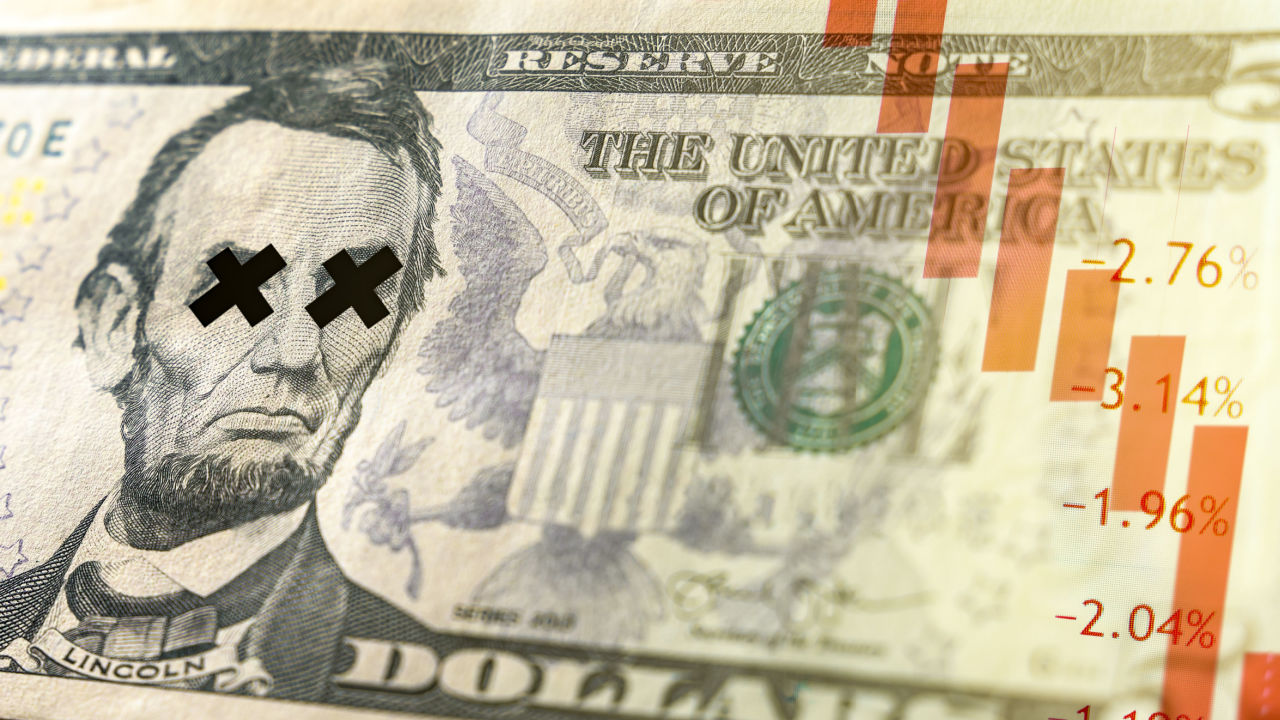Global Reserves Held in US Dollars Fell to Less Than 50% — Official States It Has Become a ‘Toxic’ Currency – Economics Bitcoin News
3 min read
The percentage of reserves held in U.S. dollars by central banks has fallen to less than half of the global total of reserves, according to a note from Eurizon SLJ Asset Management. The note states that the recent sanctions enacted by the U.S. against the Bank of Russia have eroded trust in the dollar as a reserve currency.
Central Bank Dollar Reserves Hit 47% as Trust in the Currency Erodes
Central banks are beginning to diversify their reserves away from the U.S. dollar. A note issued by Eurizon SLJ Asset Management on April 17 revealed that the percentage of the reserves that central banks held in dollars hit 47% during 2022, falling sharply since 2021, when dollars represented 55%.
Analysts from the firm explain that this decline in just one year is “exceptional,” and marks an acceleration of the predicted erosion rate of the U.S. dollar.
The cause, the report states, has to do with the wide package of sanctions that the U.S. government applied to Russia due to its involvement in the current Russia-Ukraine conflict, freezing its gold and foreign currency assets abroad, and putting several key companies on the designated entity list of the Office of Foreign Assets Control (OFAC).
The note explains these “exceptional actions” have made other countries less willing to hold their reserves in the form of U.S. dollars.
The Dollar Has Become ‘Toxic’
This de-dollarization trend fueled by the so-called “weaponization” of sanctions by the government of the U.S. has global blocs like BRICS and ASEAN looking for alternatives to safely conduct trade amongst themselves.
BRICS is currently studying an initiative for creating a common currency, that will be discussed at the next BRICS summit to be held in South Africa. In the same way, ASEAN countries have called for reducing reliance on the dollar, and the usage of national currencies for international settlements, fearing the application of secondary sanctions.
On April 19, Russian Deputy Minister of Foreign Affairs Alexander Pankin criticized this “weaponization,” noting that more and more countries were increasing their gold holdings while dropping their foreign currency reserves. He stated:
These trends show that the US dollar is becoming big, strong, but still toxic for everyday operations. It’s not a mainstream trend, but I believe it might become a trend.
What do you think about the drop in the global percentage of reserves held in U.S. dollars? Tell us in the comments section below.
Image Credits: Shutterstock, Pixabay, Wiki Commons
Disclaimer: This article is for informational purposes only. It is not a direct offer or solicitation of an offer to buy or sell, or a recommendation or endorsement of any products, services, or companies. Bitcoin.com does not provide investment, tax, legal, or accounting advice. Neither the company nor the author is responsible, directly or indirectly, for any damage or loss caused or alleged to be caused by or in connection with the use of or reliance on any content, goods or services mentioned in this article.
Read disclaimer




